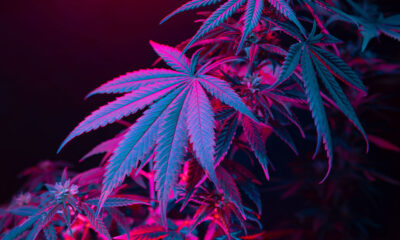
Hemp
Hemp Week
We know that here in the U.S. we should have been celebrating Hemp Week all along. After all, the plant was vital to the founding of our nation.
From the historic and iconic U.S.S. Constitution (“Old Ironsides”) to Dr. Bronner’s Magic Soap, hemp has long been a staple of U.S. agriculture. Not until the Marihuana Tax Act was passed did hemp fade from our country’s farms.
And therein lies the problem – the U.S. banned hemp. Silly, yes. Criminal, perhaps. Un-American, definitely.
When we consider the versatility of the hemp plant – food, fuel and fiber – it boggles the mind that our government was the principle instigator of hemp/cannabis prohibition.
Luckily we are a people that hate to be lied to and prohibiting hemp was a big lie. Thankfully we have Jack Herer to thank for his classic, “The Emperor Wears No Clothes.” Jack’s work is one of the keys to our soon-to-be-returned right to grow hemp.
As humanity rolls towards a future that demands we change our ways of fueling transportation, that cries out for a means to provide food to the thousands dying every day from starvation and malnutrition. We also desperately need an alternative to deforestation, we will need hemp.
One of the most nutritious foods, easily grown without pesticides and herbicides, hemp might just save the planet. But will our politicians listen as we, the people, continue to lead? Doubtful, so it is up to us.
Thankfully the Internet has made disseminating the truth on hemp an exponentially growing educational exercise. As always, the politicians lag behind the people.
Last year in Colorado, farmer Ryan Loflin grew and harvested 55 acres of hemp – the first legal hemp crop on the continent in generations. While more symbolic than functional, the crop was hand harvested by Loflin and a few dozen volunteers and Dr. Bronner’s became the buyer.
Unlike Loflin in Colorado, Alex White Plume was not so lucky a dozen years earlier in Pine Ridge, SD, on the Pine Ridge Reservation. The poorest community in the U.S., Pine Ridge needs jobs and Alex White Plume felt hemp was a good way to help meet his community’s needs.
In 2000, Alex and his family planted their first hemp crop. The DEA descended in their helicopters with their automatic weapons and destroyed the crop. In 2001 the White Plumes planted again. Again the DEA came and destroyed the crop.
In 2002, this time with a tentative buyer for his hemp crop, they again planted. This time it was the justice system that ruined the White Plume’s hopes. Banned by injunction from even touching his hemp plants, others did the work in his stead.
But that injunction even prevented receipt of the crop by the buyer, Madison Hemp and Flax Co.
The United States is the only industrialized nation to not grow hemp. Instead, our government harasses and persecutes good people like Alex White Plume and his friends and family in South Dakota for growing hemp.
For some reason American cops have a form of myopia that causes hemp to look like pot. Perhaps the most used line by law enforcement in their opposition to hemp farming is that, “Them damn hippies will plant their pot in with the hemp.”
Yeah, right.
Skinny and tall and planted close together hemp plants hardly resemble a pot plant that is maybe 7 feet tall and as big in diameter. But, hey, who are we to mock those that refuse to be educated?
Last year in Kentucky, as that state debated passing proposed hemp legislation, Kentucky State Police Commissioner Rodney Brewer said, “It’s incredibly difficult, if not impossible, to the casual observer or even the astute observer to tell the difference between hemp and marijuana as it’s being grown.”
We’re sure that line has the late Kentucky hempster (and lawyer), Gatewood Galbraith, turning in his grave.
Surely there has been some hyperbole from the cannabis camp but the fact is that hemp is imported to the U.S. to the tune of around $500 million annually. Why do we, the self-proclaimed breadbasket of the world, pay China, Russia, Hungary, etc., to grow a crop we will enthusiastically claim we can grow better?
If we started growing hemp now, how fast would that industry grow? We need jobs and we need innovation. Surely the world’s most versatile agricultural commodity has uses we have yet to find because for the last 60 years we have been banned from any domestic research on cannabis.
The lies of Harry Anslinger and his fellow conspirators has been a travesty. Cannabis prohibition is a cause promoted by extremists. With no basis in fact, science or common sense, prohibition is the enemy.
But we are winning. Colorado and Washington proved that. Now we need to really push against the forces of prohibition.
Events like Hemp Week are exactly where we need to head. Forget DARE forget Red Ribbon Week, hemp is where the fair is at!
Truth as a foundation serves all. Lies serve the few – and that few is hardly the best few.
Hemp is very American.
Hemp is very patriotic.
Hemp defended our nation during its founding. Hemp served again in WWII.
Names of people like Bill Conde, Gatewood Galbraith, Alex White Plume and Jack Herer will go down in history when the prohibition of cannabis is dead and the whole of the drug war is ended and the researchers begin compiling the tragic details of prohibition II.
Celebrate hemp! Support those businesses and industries that have supported us these many long years.
Besides, how many other plants can say, “Smoke me, eat me, wear me” and really mean it?
Hemp for victory, indeed.
Hemp is featured on the most recent cover of Cannabis Now Magazine. Purchase the issue here.


























